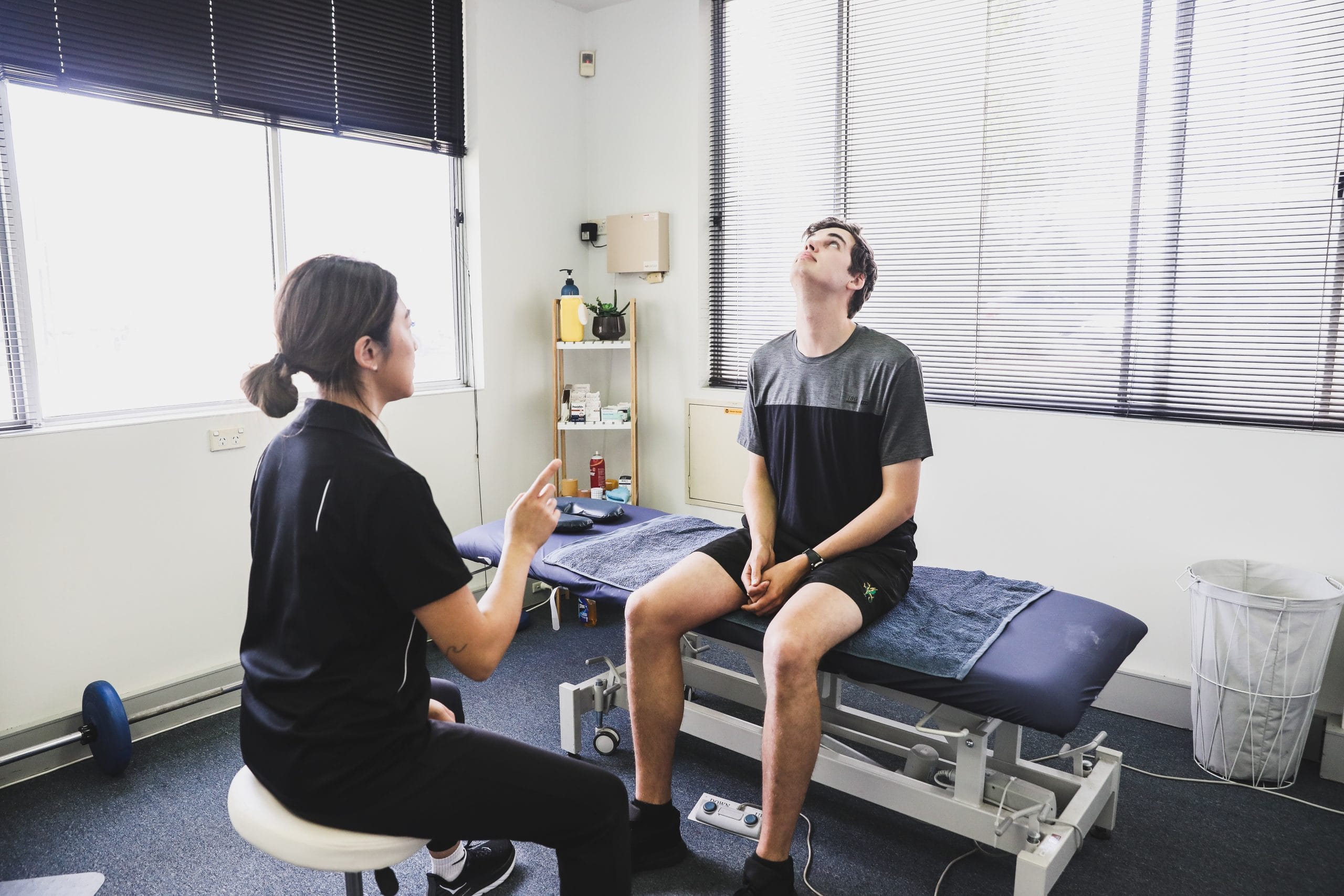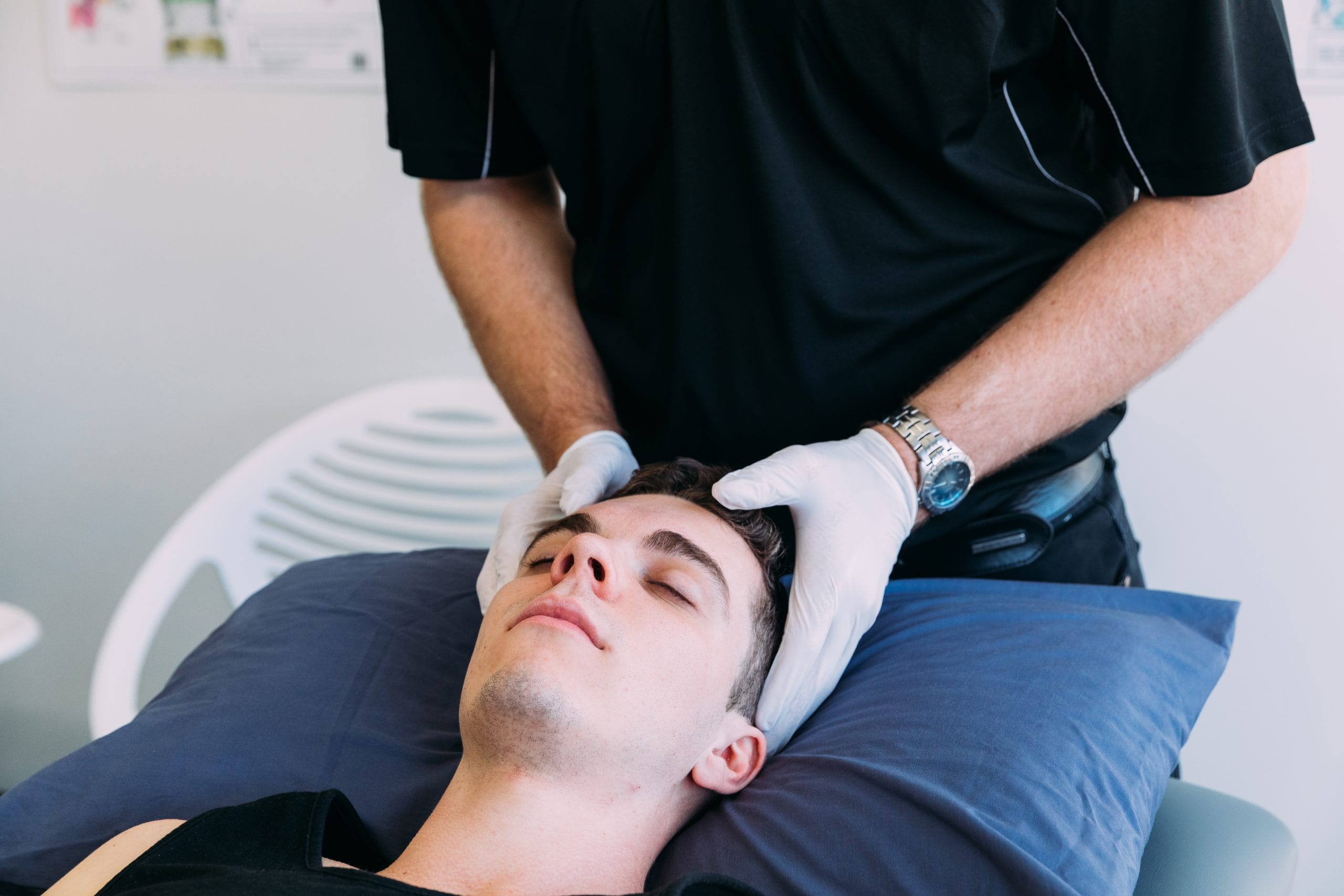
Remember as a kid when you’d spin on the spot and try to walk in a straight line? It was fun back then, but not as much fun as an adult when there’s no spinning involved but you’re still suffering with dizziness.
That’s vertigo. And when you’re trying to get on with your daily routine, it can be debilitating to have to deal with the world spinning around you.
How can you treat vertigo at home to find some relief? Let’s break it down.
IMPORTANT NOTE: Please remember that these suggestions are not a substitute for professional medical advice. Vertigo can have various causes, each requiring specific treatments, so consulting with a healthcare professional or our physios in South Perth is essential to ensure the remedies you try are suited to your condition.
Understanding vertigo
Vertigo is more than just feeling dizzy; it’s a specific sensation of spinning or moving, even when you’re perfectly still. Often stemming from inner ear problems, vertigo can be triggered by conditions like BPPV (Benign Paroxysmal Positional Vertigo), Meniere’s disease, and vestibular neuritis. Other factors, like migraines or head injuries, can also lead to vertigo, making it a complex symptom with various potential causes.
Understanding these triggers is the first step towards managing vertigo effectively at home.
Signs and symptoms of vertigo
Do you have vertigo? Look out for some of these symptoms.
- Spinning sensation: Feeling as if you or your surroundings are spinning or moving.
- Balance problems: Difficulty standing or walking straight due to perceived movement.
- Nausea and vomiting: Feeling sick or vomiting because of the dizzy spells.
- Impact on daily life: These symptoms can disrupt your everyday tasks and reduce your overall quality of life.
How to manage vertigo at home
Epley Manoeuvre
A well-regarded technique, the Epley Manoeuvre is designed to alleviate the symptoms of BPPV, a common cause of vertigo. It involves a series of specific head and body movements performed under guidance to help dislodge the tiny calcium particles that cause vertigo from the semicircular canals of the inner ear to a less sensitive area.
Starting in a seated position, the manoeuvre includes tilting the head, lying back quickly, and turning the head from one side to the other. It’s often effective after one or two treatments and, while it can be done at home, it’s best done with the help of a healthcare professional to make sure it’s performed correctly and safely. It offers a potential path to relief if you’re suffering from vertigo, but check with your healthcare professional before doing it yourself at home.
Foster Manoeuvre (Half Somersault Manoeuvre)
Another technique for managing BPPV at home is the Foster Manoeuvre, also known as the Half Somersault Manoeuvre. This self-administered exercise aims to reposition the calcium crystals in your inner ear. It’s similar to the Epley Manoeuvre but involves different movements.
Start by kneeling, then tuck your head towards your knees before lifting your head up and back into a semi-somersault position. Then return to a seated position.
This manoeuvre can be more manageable for some people to perform on their own, and it’s been reported to help alleviate the symptoms of vertigo by restoring equilibrium in the inner ear’s fluid dynamics.
Ginkgo Biloba
Ginkgo Biloba is a natural supplement derived from the leaves of the Ginkgo tree, touted for its potential to enhance cognitive function and circulatory health. For those experiencing vertigo, Ginkgo Biloba can potentially offer relief by improving blood flow to the brain, which can stabilise inner ear function and reduce symptoms.
As with anything mentioned in this blog, it’s important to approach this remedy with caution and consult your healthcare provider or vestibular physiotherapist before trying Ginkgo Biloba, especially if you’re taking other medications, to avoid adverse interactions.
While not a cure-all, this herbal supplement could be a beneficial component of a broader strategy to manage vertigo symptoms.
Ginger tea
Ginger tea is a simple, natural remedy known for its anti-inflammatory and anti-nausea properties. While it won’t cure your vertigo, it can definitely be a comforting option to help you feel a little bit better. Ginger can help alleviate gastrointestinal discomfort like nausea and vomiting, which often accompany vertigo.
Preparing ginger tea involves steeping fresh or dried ginger in hot water, creating a soothing beverage that can be enjoyed throughout the day. This remedy is not only beneficial for easing some of the symptoms of vertigo, but also promotes hydration.
Stay hydrated
Speaking of hydration, adequate hydration is crucial for overall health and can be particularly beneficial if you’re experiencing vertigo, especially if dehydration is a contributing factor. The body’s balance and inner ear function can be negatively affected by dehydration, leading to or exacerbating vertigo episodes.
Drinking sufficient water throughout the day helps maintain your body’s fluid balance, supporting inner ear health and potentially reducing the frequency and severity of vertigo. You can also incorporate hydrating foods into your diet, like fruits and vegetables, to help with hydration.
Stress management
Stress and anxiety will make a number of health conditions worse, and that goes for vertigo too. Managing your stress in a healthy way can help alleviate some vertigo symptoms and make life that little bit easier.
Techniques like deep breathing exercises, meditation, yoga, and progressive muscle relaxation can help lower stress levels and potentially reduce the occurrence of vertigo episodes. Regular physical activity and pursuing hobbies or activities you enjoy can also serve as effective stress relievers.
By incorporating these stress management techniques into your daily routine, you may experience a decrease in vertigo symptoms and an improvement in your overall quality of life.
Sleep and rest
Quality sleep and rest are vital for managing vertigo; fatigue can aggravate the condition and make symptoms worse. Make sure you have a comfortable sleeping environment, maintain a consistent sleep schedule, and adopt a proper sleeping position to minimise the risk of vertigo episodes. Elevating your head slightly with pillows and avoiding sudden movements when getting out of bed can also be helpful.
Make sure you’re allowing periods of rest throughout the day to help your body recover and reduce the intensity of vertigo symptoms! We’re living in a bit of a hustle culture these days, but it’s important to slow down and take breaks when you need to. Prioritising sleep and rest is an important step in managing vertigo and enhancing overall health.
Acupressure
Acupressure offers a natural, hands-on approach to alleviating vertigo symptoms. By targeting specific pressure points, acupressure can help reduce the dizzying sensations of vertigo, promote relaxation, and improve overall circulation.
This is something you can do in the comfort of your own home. Research which acupressure points are associated with vertigo relief and work them into your daily routine as needed.
Tips to prevent vertigo
To help prevent vertigo, look at incorporating some of these into your daily routine.
- Avoid rapid head movements and be cautious with activities that could affect your balance.
- Engage in exercise that promotes balance and stability, like yoga, to strengthen your vestibular system.
- Eat a balanced diet that supports your ear health, including foods high in vitamin D and magnesium.
- Identify and reduce potential triggers. Someone with Meniere’s disease might reduce salt intake, for example.
- Keep your body well-hydrated.
- Limit caffeine and alcohol.
Take a step towards stability
If you’re navigating the challenges of vertigo and seeking compassionate, personalised care, our dedicated team is here to support you with vestibular physiotherapy. We understand the complexities of vertigo and are committed to helping you find the relief and confidence you need to lead a balanced life.




